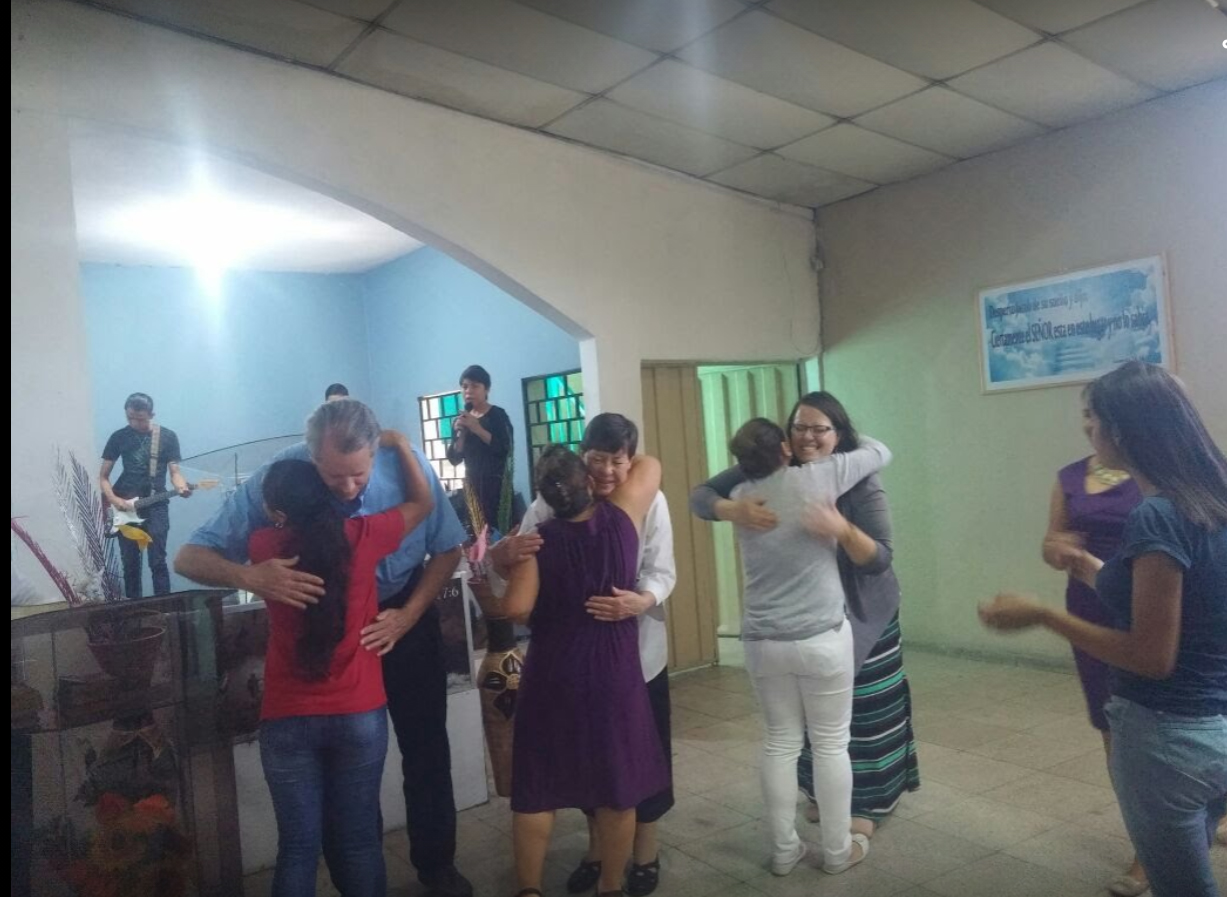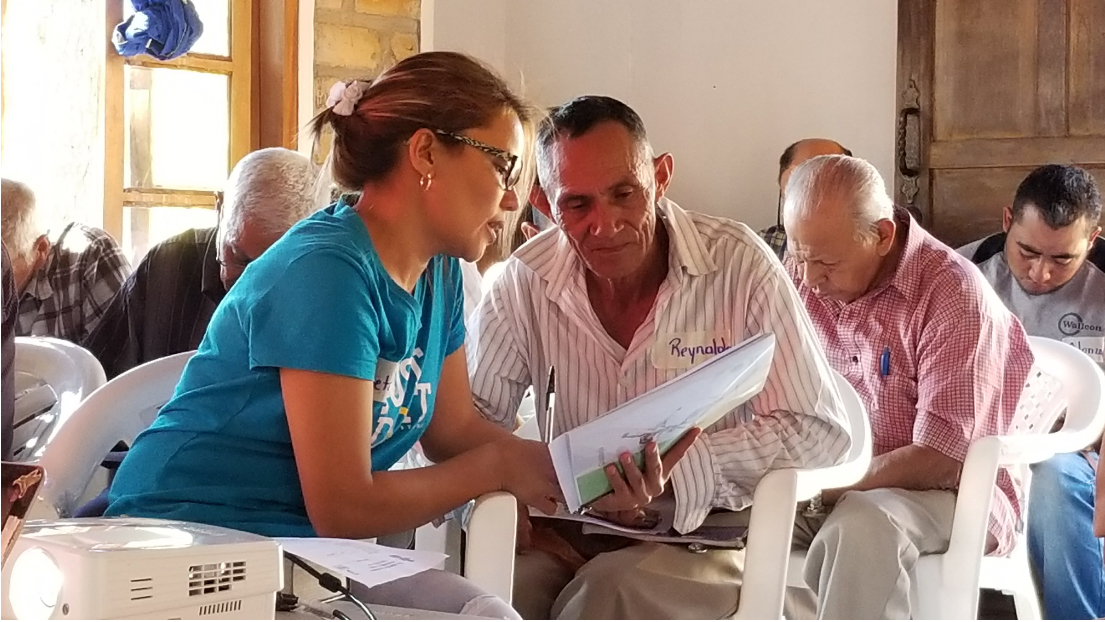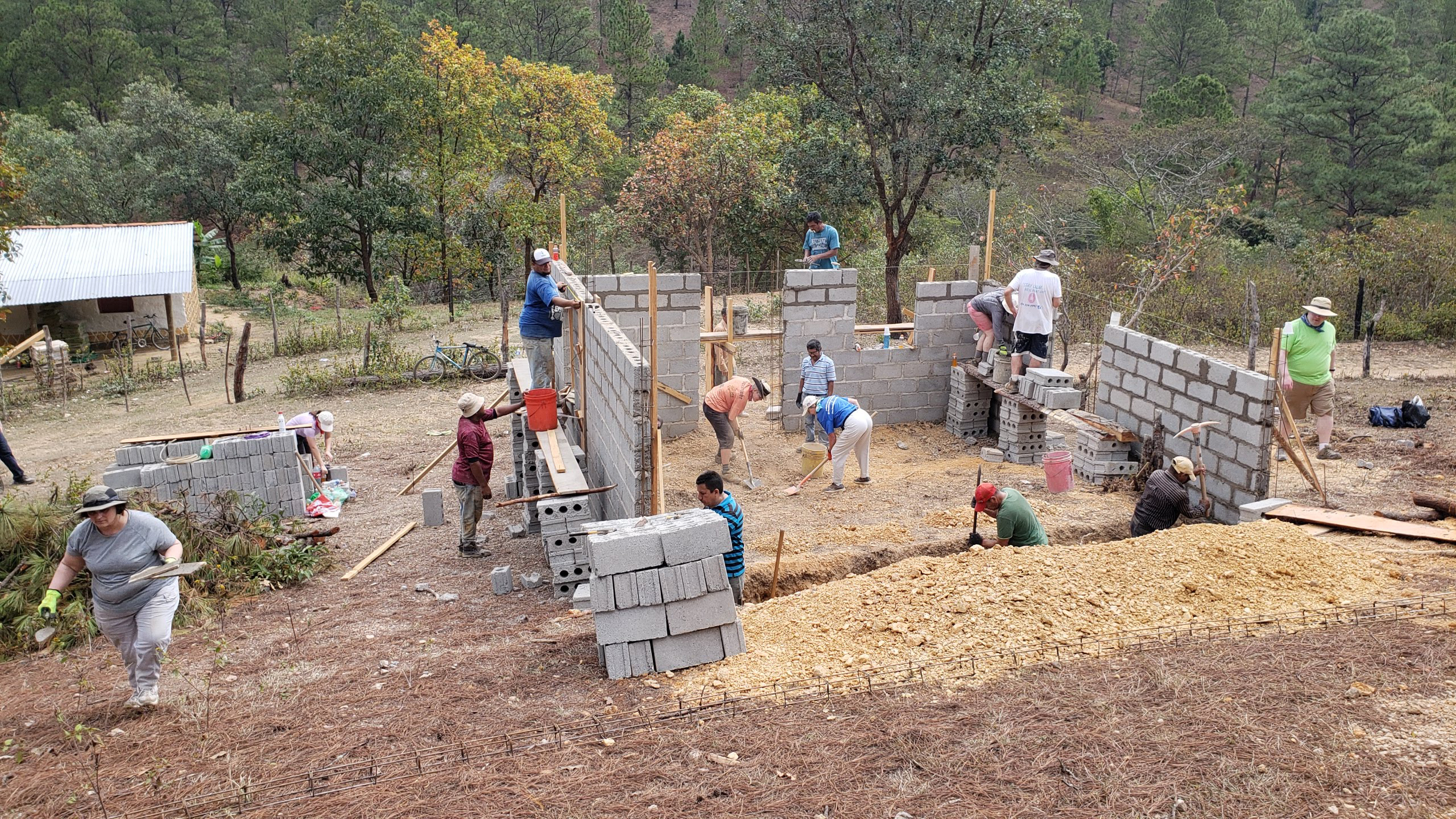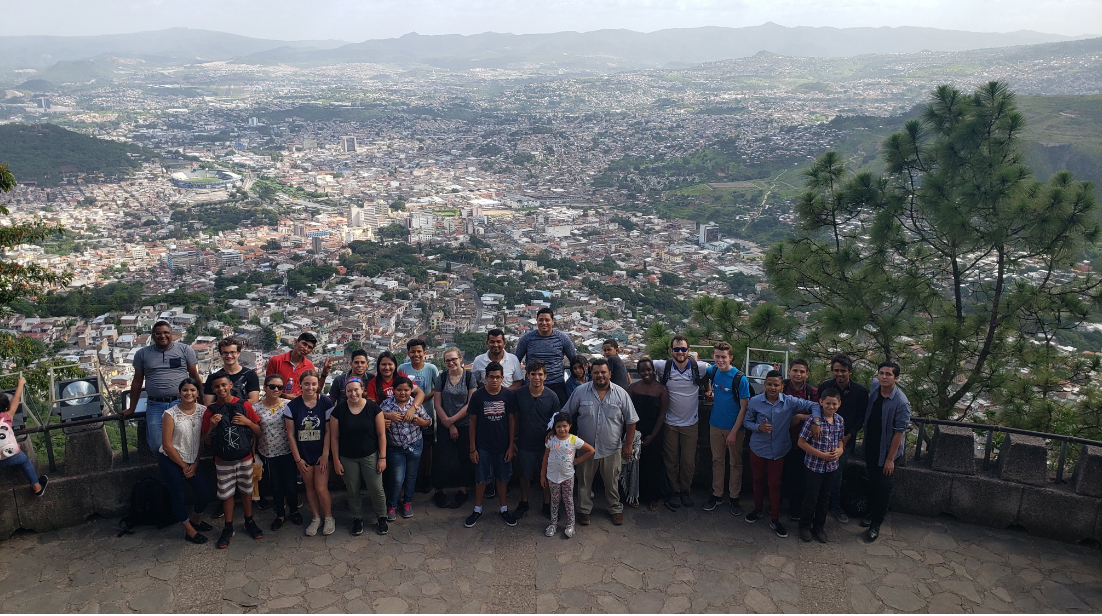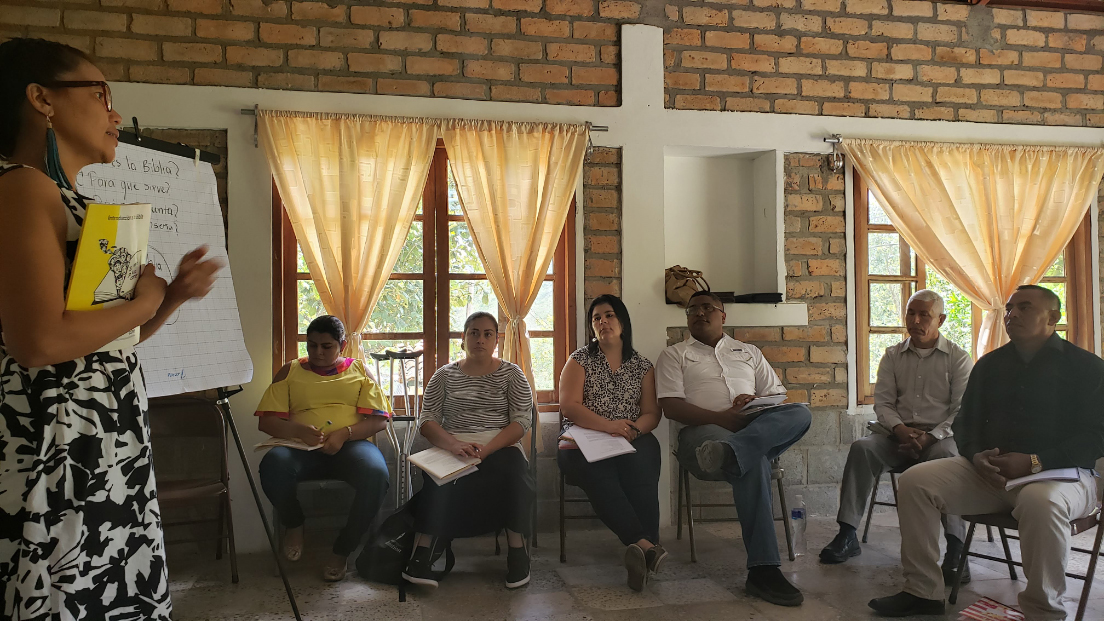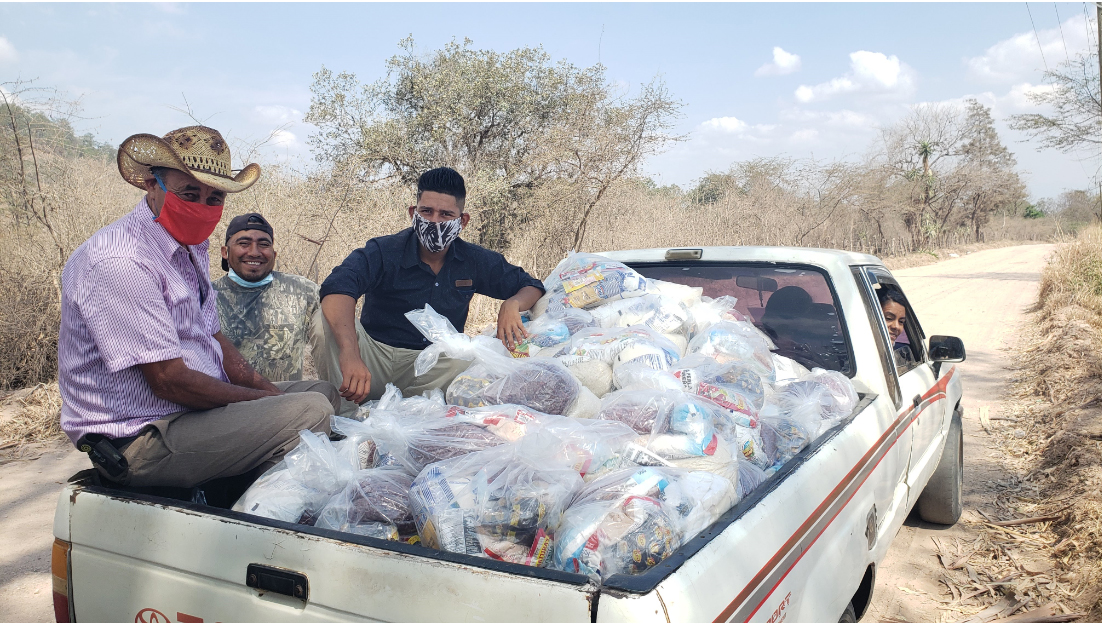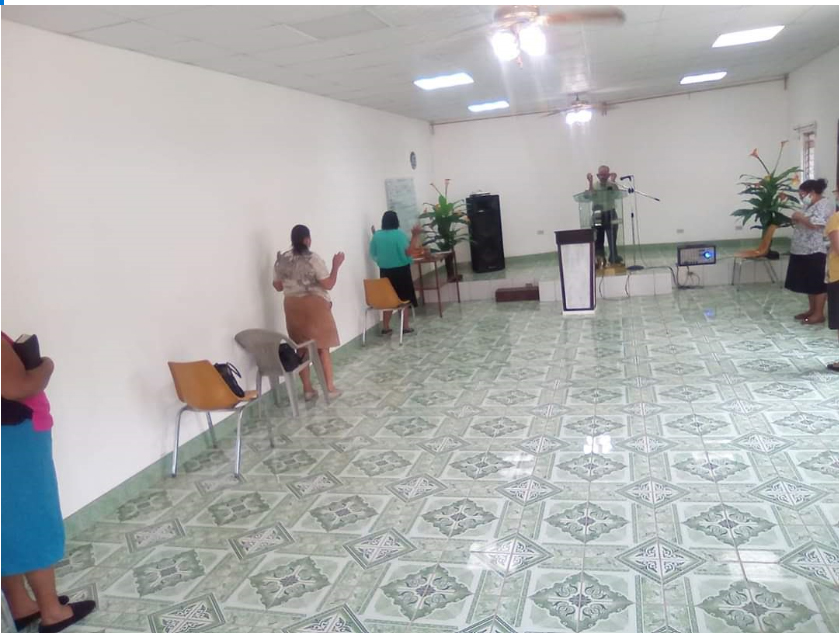A Letter from Dori Hjalmarson, serving in Honduras
October 2020
Write to Dori Hjalmarson
Individuals: Give online to E200535 for Dori Hjalmarson’s sending and support
Congregations: Give to D507592 for Dori Hjalmarson’s sending and support
Churches are asked to send donations through your congregation’s normal receiving site (this is usually your presbytery)
Subscribe to my co-worker letters
It has been difficult over the past six months for me to see where God is working. I have been, along with the majority of Hondurans, under orders to stay home, sometimes leaving only once a month for essential business, and doing all my work over a computer screen. This experience runs counter to every cultural norm in Latin America, where warm greetings, handshakes, hugs, and kisses are all but mandatory, especially among church members and where long church services happen multiple times a week, with live preaching, extended singing, and children running every which way.
Where is God in all this? We are not encountering God in the ways we normally do, so how can we realign our vision? These are the questions we asked in mid-September, at the six-month mark of near-total shutdown in Honduras. I invited several colleagues from across Central America to ponder the question: “How has God appeared to you during these six months.” Two of my colleagues had had personal experiences with COVID-19. Santiago Flores, a pastor in El Salvador, had survived a severe case of the illness and had been near death. Several members of his church family have died after contracting the virus. Betzabé Reyes of Honduras had been quarantined with 15 members of her family. She was the first in their small town to test positive for the disease. Her mother was hospitalized for days before recovering.
Betzabé, confined to her home with 15 family members, said she felt like a pariah in the community. Although they were taking all possible safety measures, keeping their distance and wearing masks, they heard gossip and jokes and saw neighbors avoid the street in front of their house. Her mother resisted going to the hospital when her symptoms became more severe; she was afraid of becoming infected at the large public hospital, not receiving treatment because of discrimination or lack of resources, and being far from her family. Some religious leaders blamed the victims of COVID-19 for their weakness or lack of faith.
A few days into the family’s isolation, God appeared to Betzabé. At the wall around the family’s garden, there appeared a box of food. A young neighbor had taken up a collection. The next day, more donations appeared on the “blessed wall,” along with messages and notes of solidarity, compassion, and encouragement. “You’re not alone; we are with you,” one note read. Betzabé realized that the community was praying and fasting for her and her family and taking up collections to ensure they didn’t go hungry.God is on the wall, Betzabé told our conference attendees on Sept. 15. God is on the wall. God is in the six feet of social distance. God is among the mourners, among the infected, among the caregivers.
It has helped to realize that, although this global crisis feels unprecedented, it is not. The Rev. Dr. Karla Koll, my colleague from the Latin American Biblical University in Costa Rica, also shared with our conference. Martin Luther, John Calvin, and early church leaders in Rome also asked the same questions. Where is God? What is the responsibility of Christians? Is our faith stronger or weaker because of this experience?
In 1527, Martin Luther wrote, “Therefore I shall ask God mercifully to protect us. Then I shall fumigate, help purify the air, administer medicine, and take it. I shall avoid persons and places where my presence is not needed in order not to become contaminated and thus perchance infect and pollute others, and so cause their death as a result of my negligence.” A Christian does not fear death, the Reformers believed, but a Christian does everything possible to avoid causing it.
John Calvin wrote that the commandment “Thou shalt not kill” means more than not intentionally killing. “I hold that it moreover means that we are to aid our neighbor’s life by every means in our power.”
Karla also pointed to scripture, noting that Christians responded differently to epidemics during the second and third centuries than others did. When the wisdom of the day advised abandoning the sick, Christians walked among the sick, not fearing death. Paul wrote in Romans 8, “For I am convinced that neither death, nor life, nor angels, nor rulers, nor things present, nor things to come, nor powers, nor height, nor depth, nor anything else in all creation, will be able to separate us from the love of God in Christ Jesus our Lord.”
So, where is God in this pandemic? God is where God has always been in every time of suffering: among the sick, among the caregivers, in the six feet of social distance, under the mask, and on the blessed wall.
Personal note: I want to thank all of you who have continued supporting the Presbyterian Church of Honduras with prayers and gifts over the past six months. Almost immediately after the government announced border closings and near-total economic shutdown, curfew, and quarantine, the church began the herculean effort of gathering and distributing food supplies, especially in urban areas most affected by lack of access to food and supplies. The Presbyterian Church (U.S.A.), through Presbyterian Disaster Assistance, also helped another partner, the Mennonite Commission on Social Action, to aid migrants and their families who had been deported from Mexico and the United States during the crisis. From the bottom of my heart, I thank you and the church for this effort to be “on the wall” for those who were suffering. Now that the emergent need has passed, the Presbyterian Church has paused its food distribution program, and we are turning our attention to other pressing needs such as restarting our theological education program and assisting elementary school students who have lost nearly a year of education. Please keep us in your prayers as we reimagine church and community in this new reality.
Dori
![]() You may freely reuse and distribute this article in its entirety for non-commercial purposes in any medium. Please include author attribution, photography credits, and a link to the original article. This work is licensed under a Creative Commons Attribution-NonCommercial-NoDeratives 4.0 International License.
You may freely reuse and distribute this article in its entirety for non-commercial purposes in any medium. Please include author attribution, photography credits, and a link to the original article. This work is licensed under a Creative Commons Attribution-NonCommercial-NoDeratives 4.0 International License.
